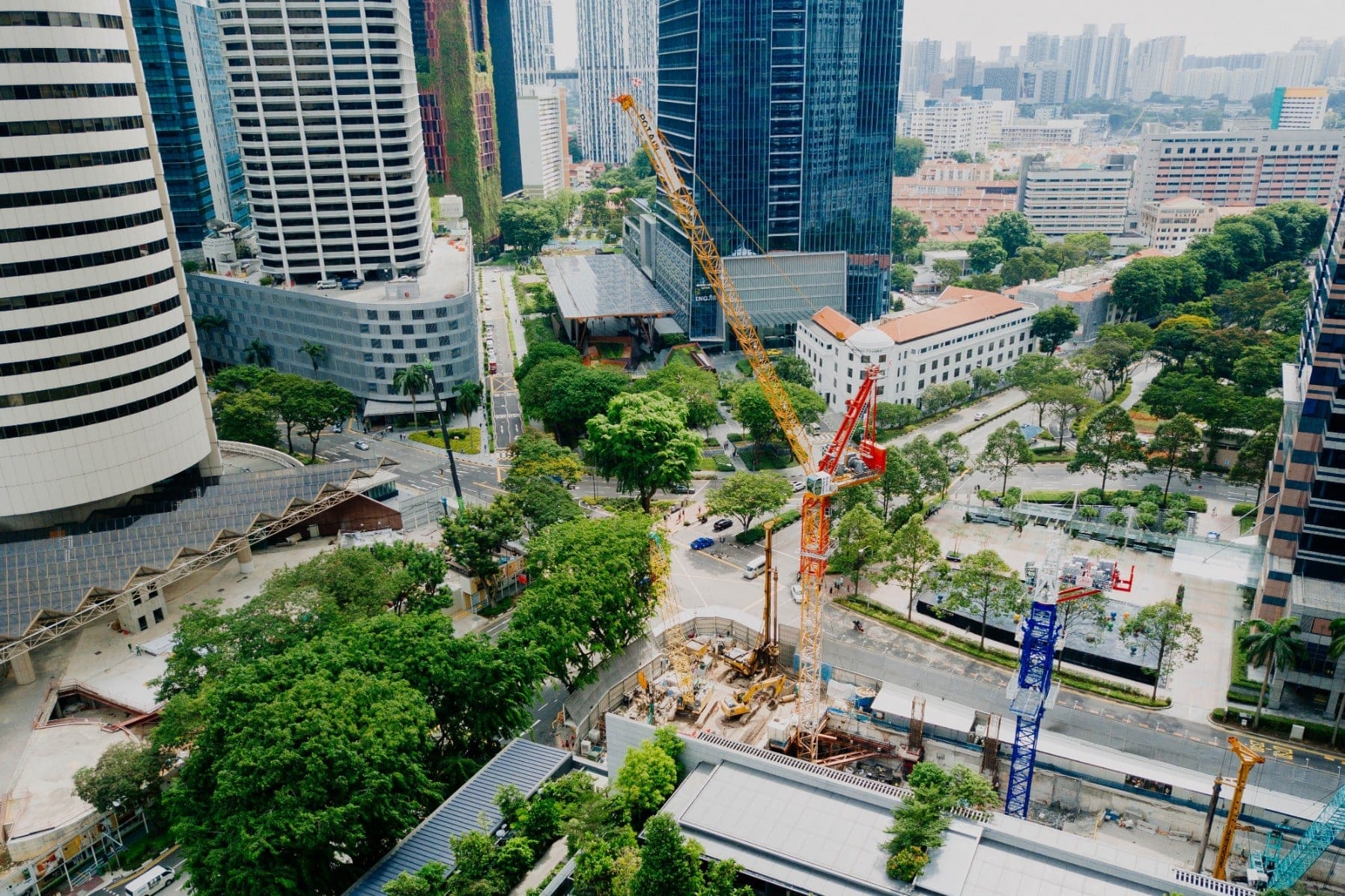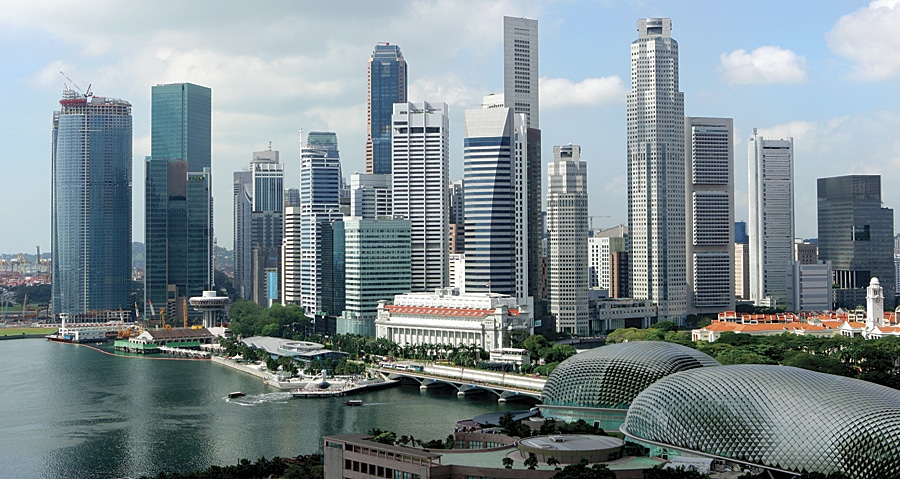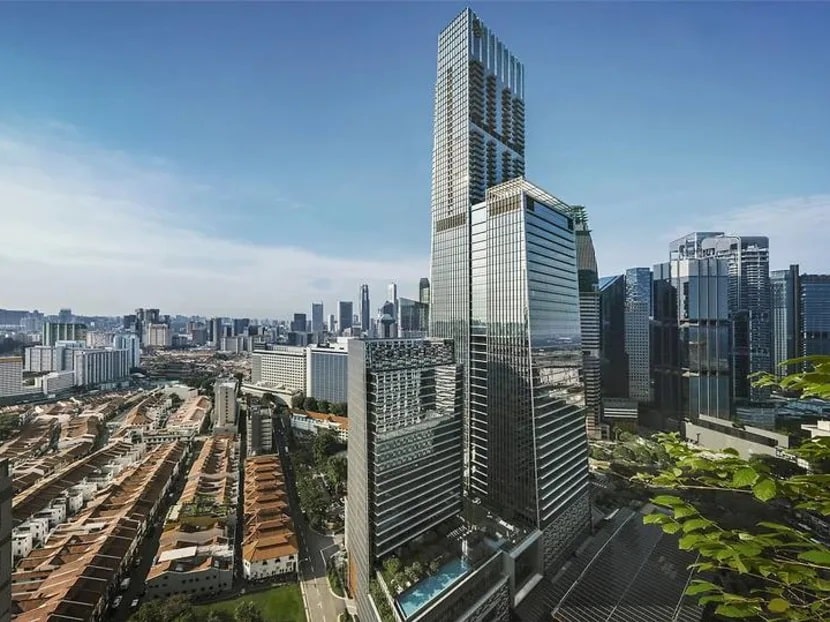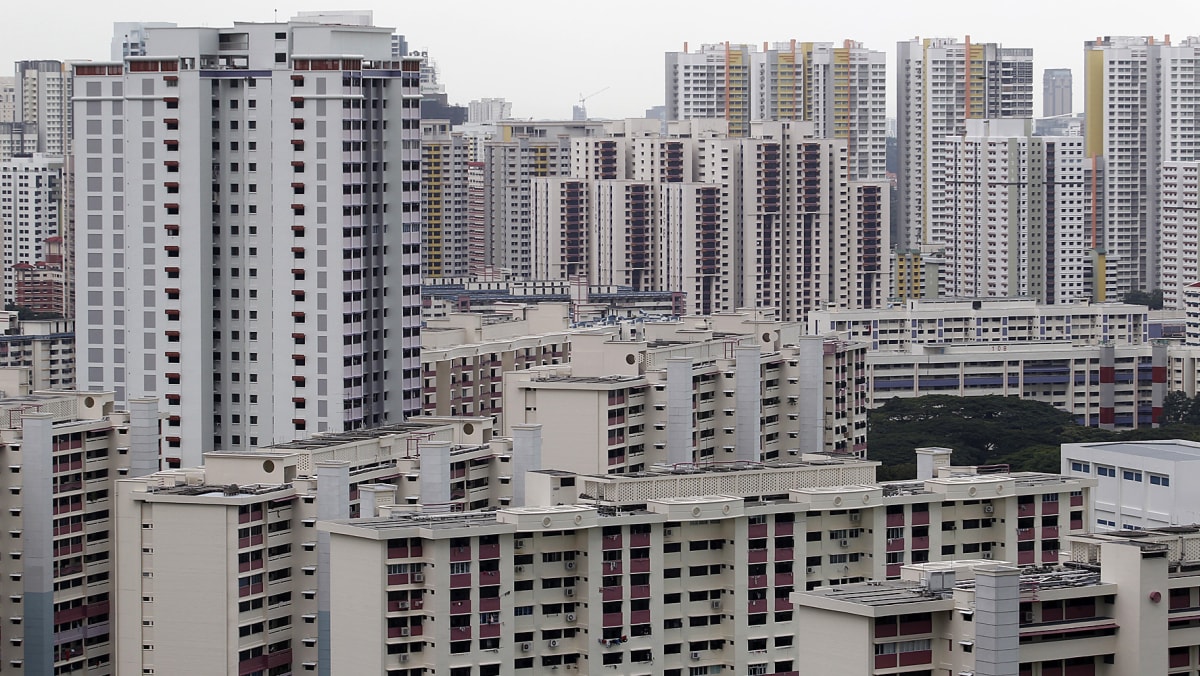List Of Land tenure in Singapore
Land tenure in Singapore
Introduction

The length of lease is all that meant by the phrase land tenure. As investors, we want our investment purposes properties have more time on the market so that banks can grant us loans with the long possible terms. The longest land tenure for new industrial developments in Singapore is 30 years at a time. Subtracting five years from the remaining lease on the property will establish the borrower’s loan term. It indicates that you will only be eligible for a loan with a maximum of 15 years if you purchase an Industrial properties with a 20-year remaining lease. A shorter loan term will result in a higher monthly mortgage payment compare purchasing a different, comparable property with a longer lease term.
What is the tenure of land in Singapore?

In medieval England, term referred to prevailing system land ownership and possession. Under the tenure system, a landholder called a tenant land at the will of a lord gave the tenant possession of the land in exchange for goods or services provided by the tenant. Tenures are the many configurations of the relationship between the tenant and the lord. Land tenure can defined as who has the right to use resources for how long and under what circumstances. The two types of property ownership available in Singapore are leasehold and freehold. The latter indicates that there is no temporal limit on your right to freehold land and property. You own both the property and the land values it situated on in perpetuity.
The government required to buy your residential property to make way for a project that benefits the public, such as the construction of roads, bridges, and railway lines. You won’t have to worry about being forced out of your home or finding another apartment if you own a freehold land or property. In contrast, leasehold signifies that your ownership is only valid for a predetermined amount time.
What will happen after 99 years of leasehold in Singapore?

Due to its small size and growing population, Singapore faces severe housing issues. Additionally, there is a lack of adequate land. Leasehold land will often given over to the State upon lease expiration can revitalise the modern social and economic demands of Singaporeans. With a 99-year lease, the apartment can pass down for one or two generations before being given back for development. Singapore is not the only city with 99-year leasehold owners; residential properties also offered for sale in Hong Kong and Canberra, Australia, on 50-year leases.
The leasehold tenure in Singapore is typically 99 or 999 years for private properties. A property passed down through several generations over a 999-year period, which is a lengthy time. The government no longer offers 999-year leasehold ownership tenures once given. The 99-year leasehold term is currently the most popular. The 99-year leasehold property owners have two options paying the government a premium to lengthen the lease. Either they can immediately extend the lease on their land with SLA or sell their property to another developer (known as a collective or en-bloc sale). Both actions cannot taken individually; they must be taken jointly by all owners.
Lease top-up
Things are a little different for private property owners. You can immediately pay SLA a lease top-up to increase your tenure to 99 years. For instance, if your lease has 50 years left, you would add money to it so that it would return to 99 years. The premium for the lease top-up will determined by SLA’s Chief Valuer depending on each situation criterion that will take into account is how many years left on the leasehold.
But just because for something doesn’t mean you’ll get it. The decision to accept or reject the lease top-up ultimately rests with SLA. Reviews whether the extension would fit with the government’s long-term plan for the space and the facility used to its full potential. You can stay in your house if you are successful. But if denied, you’ll have to vacate the property when the lease expires or sell it before the property loses value. However, since the total amount owed would typically reach millions of dollars, most homeowners would prefer to leave than pay the additional lump payment to stay in the home. You would be better off relocating unless the sentimental value of your home justifies the other millions of dollars.
The decision to accept or reject the application now rests solely with SLA. SLA takes into account numerous aspects of the lease when making its choice. It involves determining whether the addition would be consistent with the government’s long-term plans for the property and whether the proposed use would maximise the utilisation of the site. Event a lease top-up is booming, property owners permitted to remain in their homes for the 99-year term of the renewed lease.
Are you interested in purchasing a Singapore apartment with a 99-year lease?
Naturally, for the majority of 99-year property owners, this would be the best choice. Unfortunately, the outrageous land premium levied by the SLA makes this choice prohibitively expensive for regular people; therefore, businesses or other privately-held entities that can afford it commonly choose this option.
En bloc
If homeowners in your complex agree to it, private owners may also choose an en bloc. When your en bloc request is approved, you can anticipate receiving a sizable payment exchange for your evacuation from either a private developer or the government.
Even if you do not remain in your home once the lease expires, you will at least receive a certain amount of money in exchange, which is unquestionably a better option than being forced to leave your house values without getting anything in return. It might be a problem, though, since the owners must all agree to the suggestion, which cannot make individually. Additionally, it depends on the developer’s consent depending on the location property and whether they believe it would be worthwhile to purchase the site and reconstruct it into a different, more profitable property for financial gain.
They receive compensation for their property, though, which they would not have received had their lease expired. En-bloc sales reached their pinnacle in 2007, which also saw the sale of the Farrer Court apartments (now D’leedon) as the largest en-bloc transaction to date. Each of its 618 units sold for between S$2.122 and S$2.238 million, totalling S$1.3388 billion (the original link has since removed, but you can check out this thread for information on the record en-bloc sale). Farrer Court transformed into D’leedon, which made news for being the largest en bloc sale to date. Then, almost ten years later, in 2016 to 2018, the en-bloc frenzy began. Around that time, Pacific Mansion was purchased for S$980 million in 2018, had the second-highest en-bloc sale.
What is the tenure of a property?

Even though all cultures have some sort system for governing land, no single system can used across all societies because each one has own set of rules. Systems of tenure set limits have access to resources long they can be held by them and under what circumstances. These regulations could be stated or vague and susceptible to abuse.
Land Tenures: Types
Leasehold.
A predetermined number of years, such as 999 or 99, define the leasehold land tenure. A reversionary interest belongs to the original owners is generally the State, after the conclusion of the lease term. It implies that the original owner land will receive it free of charge. Paying the Differential Premium subject to approval, private housing property owners may jointly top up the lease before it reaches zero. Otherwise, choosing an en-bloc sale is a more typical course of action (collective sale).
Freehold.
Estate in Fee Simple and Estate in Perpetuity are the two types of freehold land tenure that are more popular since they give the proprietors perpetual ownership of their property.
The main distinction is that “Estate in Perpetuity” is subject to the provisions of the State Lands Act, often known as Statutory Land Grant, and is thus subject to those conditions (SLG). Life estates,” in which the land solely owned for the duration of the individual’s lifetime, are the final and rarest form of freehold tenure. Bala’s Table from SLA illustrates how leasehold and freehold are related. It calculates the land’s leasehold value as a proportion of its freehold value. The graph shows a downhill curve that gets steeper as it gets closer to the end. As a result, the value of the land will decrease dramatically as the remaining tenure shortens. It explains why the value of older leasehold properties is difficult to increase.
What is Singapore freehold tenure?
Any estate is “free from hold” of any person or organisation besides the owner is said to be freehold property. As a result, the owner of such an estate has free ownership in perpetuity utilise the land whatever they like as long as they do it in line with local laws. Since a freehold property can sold without state approval and with less red tape, it is more expensive than a leasehold one. What does buying a home entail by freehold? When referring to real estate, the term freehold only denotes total ownership. The “Estate in Fee Simple” and “Estate in Perpetuity” are examples of freehold titles.
Whatever the land size, if you are the single owner of the asset as an investor, you have the freedom to use it any way you see fit. In this case freehold ownership of land is more highly regarded. However, owners will receive a share value when freehold condominiums (also known as freehold stratum) and other sorts assets. Additionally, the Freehold property price could be up to 17% higher than Leasehold property in the identical scenario because you are the primary owner of the unit you bought in the development.
Understanding these fundamental distinctions between the two types of property tenure will help you determine that leasehold properties are generally more affordable than freehold ones. Additionally, given majority leasehold properties are state-owned, some located in neighbourhoods with superior amenities like markets and adjacent to or next to MRT Stations. About landed property, a freehold title may offer one particular advantage the ability to pass the land on to future generations. Both leasehold and freehold properties in Singapore are excellent investments since having real estate gives you peace of mind knowing that you have something that is truly valuable and can protect you at any time or place. Always double-check and comprehend any legal implications before paying for any property to avoid unpleasant surprises. We’ll bolster this claim with more data to show why buyers seek 99-year leasehold condos properties due to the real estate market. Of fact are leasehold homes, and their prices are rising far more quickly than those of freehold buildings over the past ten years.
How does land ownership work in Singapore?
The government had to take a position on land ownership in Singapore as soon as Singapore acquired its independence in 1965 since it needed land for its development programmes. The Land Purchase Act went effect in June 1967, giving the government the authority to acquire land for public infrastructure development by forced acquisition. The compensation paid to landowners’ properties was welcoming government governed by this.
Just think about the compensation based on the land’s value before development! Unsurprisingly, the land purchase act enabled the government quickly buy land. As a result, they able gain 177 square kilometres of land or over one-third of Singapore’s entire land area in 1984. In Singapore, the government-owned the most land as of 1985 (76.2%).
What category does Singaporean land ownership fall? We will explore the various types of land ownership now that you aware of the history of land ownership in Singapore. All land in Singapore ultimately belongs to the because of the country’s early land laws, and you can only own an estate or a small interest in the property. Therefore, five different forms of land grants may issued the under the State Lands Act, namely:
- estates with no debts
- estates that last forever
- rentals
- Permits for momentary employment
- tenancy contracts
In Singapore, there are two types of land ownership: freehold and leasehold. Approximately 26.7% of Singapore’s residential sector made up of private properties. These are homes that are privately owned and may be landed or non-landed. Here are further specifics about landed properties. We will concentrate more on Singapore’s non-landed private properties in this piece. Apartments, condominiums, executive condominiums are some examples.
A little 20.4% of Singapore’s total residential acreage used apartments and condominiums. Regarding 0.9%, shophouses and other properties. Landed properties in Singapore make up the remaining 5.4%. We shall thus start by defining the terms for apartments, condominiums, executive condominiums, Singapore Improvement Trust (SIT) flats, Housing and Urban Development Company (HUDC) units, cluster housing, and townhouses.
Apartments
A complex of primarily residential apartments known as an apartment may or may not have shared amenities like swimming pools. Except a few locations (Joo Chiat, Kovan, and Telok Kurau), all these have a minimum plot size of 600 to 800 square metres. Given how ancient the buildings are, some may still be walk-up flats.
Condominiums
Condominiums have a minimum plot size of 4,000 square metres and typically monitored by a security guardhouse with shared utilities. They also have high-rise housing (unless its height has prohibited the government). One of the “5Cs” that Singaporeans strive for is condominium ownership.
Upscale condominiums
The Housing and Development Board (HDB) and the private sector have combined to create executive condominiums. A private developers who had constructed the residential blocks sold these homes initially under the HDB programme. At the same time, these elite condominiums will change ownership to private ownership after Five years.
Improvement Trust of Singapore
Heritage known as SIT flats is particularly prevalent in Tiong Bahru. These are walk-up low-rise flats that were created by the British. Additionally, some have a brief lease time remaining and privatised.
How many types of land tenure are there?
Community-based land tenure:
The community gains control over the land through this method of tenure. The community head determines the terms land ownership or land share under this arrangement. Through a type of tenure system, Large scale framing supported. The Communal land tenure system does grant ownership that ownership cannot use as collateral for loans. By evaluating this tenure structure, it can conclude that Indian farmers get a significant alleviation. Additionally, it promotes long-term investment in real estate, supporting the development of land of any nation’s economy.
Tenure through Inheritance:
The ownership of the land passed to the actual owner’s next of kin under this type of land tenure upon their death. However, this system’s land distribution may cause some disagreements between the family members and other recipients.
Leasehold System of Tenure:
With this arrangement, tenants receive some “form of title” that gives them the right to hold the land from the landlord for a specific amount time. It has discovered that this kind of tenure permits agricultural cultivation permanently, depending on the length of the lease. But this ownership cannot use as security for borrowing money from various institutions. In this regard, “NABARD (National Bank for Agriculture and Rural Development)” is the premier organisation for obtaining agricultural loans.
Rental Tenure System:
According to this system, tenants must pay a sum in exchange for the right to use the land for a specific amount time. In contrast to the leasehold arrangement, it should noted that the rent duration is considerably shorter. This system land tenure deters a kind long-term strategy in the agricultural sector, at least from the tenant’s point of view.
What is land tenure in Singapore?
The effect of the property’s tenure freehold or leasehold on the cost of buying, selling, and maintaining the property will be examined. It discusses leaseholder rights and responsibilities and guides typical freeholder-leaseholder disputes. With a freehold tenure, the entire property includes the ground it is built on—belongs to its owner. Since you are the absolute owner of the title, your name appears in the land registration as the freeholder. The best option is typically to buy a freehold home, which is how most homes are. It is necessary to verify with the estate agent because homes may leased.
A leasehold tenure gives you a long-term lease to live in the house for a predetermined period. However, it is typical for many apartments to have a starting lease of roughly 125 years when they first built. Leases can be up to 999 years long. Unless the lease extended, ownership reverts to the freeholder at the end of the term. The majority of flats and maisonettes in England and Wales are leasehold. There are fewer leasehold homes in Scotland.
What are the 3 types of land tenure?
Freehold Land Tenure
A freehold land property legally “free from hold” of any entity other than the owner is a freehold. The laws of the area the freehold located, the owner of such property has the right to utilise it for any purpose. Since state approval is not required, the paperwork involved in sale a freehold property is substantially less. It also implies that the cost to buy a freehold property is higher than the cost to buy a leasehold property.
Benefits of Owning Freehold Real Estate
- Since you own the home outright, there is no lease dictating the terms of ownership.
- Since you are the freeholder, you do not need to interact with a freeholder (a landlord)!
- Ground rent, service fees, and other landlord costs are not your responsibility.
Share of freehold
You can team together with other leaseholders and decide to purchase a portion of the freehold from the landlord. If you reside in an apartment building, you might buy the freehold together manage the installation and have more control over your properties and the costs associated with maintaining them. You must have the acquisition of shares from at least half of the leaseholders to purchase the freehold as a group. However, purchases a freehold might be Land prices, and you will need to hire a managing agent or form your corporation to take care of the building management.
Leasehold
Condos that are leasehold have set lifespans. They constructed on land with a lease that would soon given back to the government. The 99-year and 999-year leases are the two most prevalent tenure lengths market. Property investment concerned, 999-year leaseholds are as good as freehold condos in the sense time does not lower their worth, as nearly impossible to outlive a 999-year lease.
Condominiums with a 99-year lease will lose value over several years. When properties move from one owner to another remaining lease does not reset. Because the freeholder is responsible for maintaining the building’s common areas, such as the lobby, stairwells, elevators, external walls, roofs, and gardens, there is less obligation with this tenure type.
What type of land does Singapore have?
The island nation of Singapore locate at the tip of the Malay Peninsula.
The dwarf is only 719 km2 (278 mi2) in size overall a total shoreline of 193 km (119.9 mi). The size land area is around 0.9 times that of New York City. Singapore is the 52nd smallest country in the world and the third smallest in Asia after Macao and Singapore. It is also the third most densely inhabited nation in the world, behind Macao and Monaco, with 7,585 people per km2. The country’s urbanisation has advanced to the point where all citizens now included in the urban population statistics.
Is there freehold land in Singapore?
When it comes to real estate, Singaporeans prefer the traditional. The 99 years won’t be enough to get the land we paid. We want it to pass down to our offspring. However, the price of freehold property is astronomical; are we acting rationally or purchasing an expensive security blanket? We look at the conditional value of freehold property in this post. It might not be the best option in your circumstances.
It should come no surprise that estates closest to the centre of Singapore contain more freehold homes than those farther out. The majority of freehold homes in Singapore are colonial-era structures previously mentioned. Since the advent of government land sales freehold, title no majority structures have only granted leasehold status. Singapore’s freehold properties in central Singapore are also where the country’s current prime districts are situated.
The term “freehold” denotes complete and perpetual ownership of the land. It is transferable to subsequent generations. Two qualities required for a property to categorised as freehold: Either there needs to be immobility the property needs to secured to the ground. There should be no set end date for the property or an indefinite lifespan.
Is freehold or 99-year better?
Since it’s challenging to pinpoint specific factors that contribute to property value, this is a challenging issue to answer. For instance, a leasehold property with 70 years remaining situated in the CBD will likely still be worth more than a freehold property on the outskirts.
It can also be hard to determine how much of a freehold property’s greater valuation is attributable to its freehold status and how much is due to its proximity to an MRT station. Lease is only one of several elements influencing value, and it is difficult to isolate its relevance.
It shouldn’t be surprising that for the past 20 to 30 years, investors and experts have been debating how leasehold versus freehold statuses affect prices. However, there are a few general implications that we might draw:
- Between the ages of 21 and 40, prices change.
- Theoretically, freehold properties sell for more money during en-bloc sales.
- Rental yields are higher with leasehold.
- Freehold’s benefit is more theoretical than practical.
Are 999 years the same as freehold?
A group of flat owners may acquire the freehold of their building in several ways; the two most popular are accepting a freehold purchase offer under the right of first refusal or by collective enfranchisement. Even though each participating apartment owner owns a stake in the newly established freehold company, once the ink on the freehold transfer has dry, it is typical for them to award themselves 999-year leases. Why is this the case?
Obtaining a 999-year lease, a flat owner can maintain the current freehold/leasehold structure while having a title that is “as good as freehold” and more marketable than an 85-year lease.The current leases within the building will outline the parties’ obligations for maintaining each part of the building, how much each flat contributes to the service charge, and other commitments that are crucial to the ongoing repair and functionality of the building. As a result, maintaining this structure is extremely important.
The leases will also confer obligations and rights on the flat owners concerning one another safeguarding each other’s interests. For instance, the lease would typically forbid a neighbour from playing loud music in the early morning hours a legal basis for action and a way to make things right. It would prevent the neighbour from creating a nuisance.
Is 999 years lease a freehold?
The developments with 999-year leases are essentially freehold homes.
The consensus is that 99-year leasehold properties will revert to after their tenure, but freehold properties can retained indefinitely by the buyer. Technically, the 999-year leasehold properties return to the once their term.
Why is freehold better than leasehold?
When the freehold becomes available, it usually makes sense to buy a house with it. The advantages of owning the freehold of a property include having more control over it, such as choosing which suppliers to use and how much to spend on maintenance, rather than having to pay continuing ground rent leasing fees. In addition to having control, you also have freedom from any landlords. It may be a great advantage for someone who has previously experienced problems with a landlord.
The responsibility for communal areas and facilities, for example, should be looked if the property is a flat before buying the freehold. The fact that one apartment owner cannot acquire the freehold of a single apartment raises another problematic issue. To buy the freehold of the entire building, everyone in the building would have to agree to purchase a share.
Shared services like maintenance and insurance would need to pay for would need to be established to determine a fair cost allocation, collect everyone’s share of the fees, and find competitive providers to provide the services. A freehold property is formally “free from hold,” as the phrase implies. According to the rules, the owner free to utilise the freehold property however they like.
The property belongs to you for an unlimited period, after which it passes to your heirs. You don’t have to pay ground rent if you own freehold property. If you decide to change the structure, you are not required to notify anyone. You wish to sell the property or even lease it to someone else, the paperwork less complicated. In the circumstances, the property readily and automatically transmitted from one generation to another. There is no possibility of the lease expiring.



